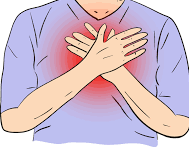

By admin
First publised on 2024-09-08 01:57:23
A recent study conducted by researchers from Harvard T.H. Chan School of Public Health, UC Santa Barbara, and the Global Alliance for Improved Nutrition (GAIN) has revealed a critical global health issue: millions of people around the world are not consuming enough essential vitamins and minerals. Published in The Lancet Global Health on August 29, the study estimates the inadequacy of 15 essential micronutrients across 185 countries. The analysis shows that over half of the global population has insufficient intake of key nutrients like calcium, iron, vitamins C, and E, leading to serious health concerns.
The study is the first of its kind to provide detailed data on micronutrient deficiencies for different age and sex groups, breaking down the population into 34 age-sex categories. These groups range from infants to individuals over 80, offering a comprehensive look at nutritional gaps across diverse populations. The research drew on data from various sources, including the Global Dietary Database, World Bank reports, and dietary surveys conducted in 31 countries. This detailed analysis covered 15 key vitamins and minerals: calcium, iodine, iron, riboflavin, folate, zinc, magnesium, selenium, thiamin, niacin, and vitamins A, B6, B12, C, and E.
Chris Free, a research professor at UCSB and co-lead author of the study, emphasized its groundbreaking nature: "Our study not only estimates inadequate micronutrient intake for 34 different age-sex groups in nearly every country, but it also makes the methods and results accessible to other researchers and practitioners." He stressed the importance of addressing this issue, given the critical role micronutrients play in maintaining health and preventing diseases.
The study found that iodine deficiency affects 68% of the global population, making it the most commonly deficient nutrient. Following closely behind are vitamin E (67% of the population), calcium (66%), and iron (65%). Other essential nutrients, such as riboflavin, folate, and vitamins C and B6, also showed high levels of inadequacy, indicating widespread deficiencies across different regions and age groups. While some micronutrients, such as niacin, showed better adequacy levels - with only 22% of the global population falling short - other critical vitamins and minerals like thiamin and selenium were lacking in 30% and 37% of people, respectively.
These findings highlight the need for urgent global health interventions to address micronutrient deficiencies. The lack of these essential nutrients can lead to serious health problems, including compromised immune systems, stunted growth, and weakened bone health. The study's authors hope that this comprehensive data will be used by governments, health organizations, and policymakers to implement programs aimed at improving nutrition worldwide.











